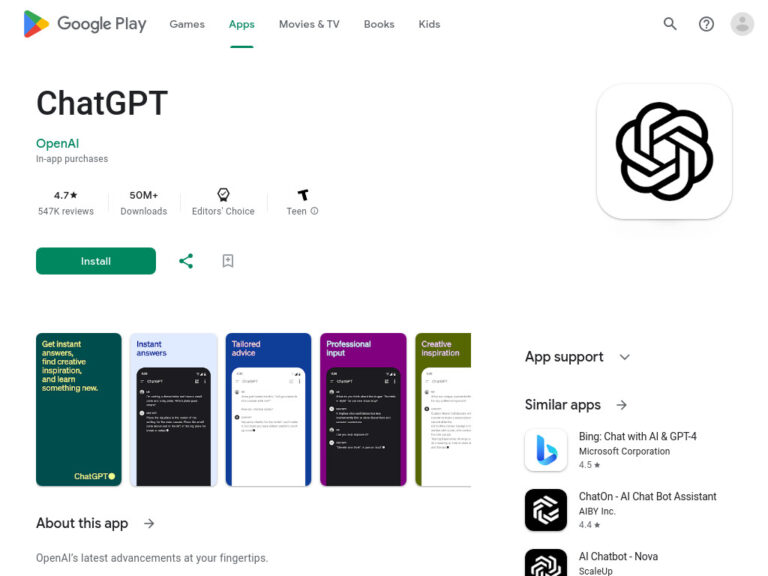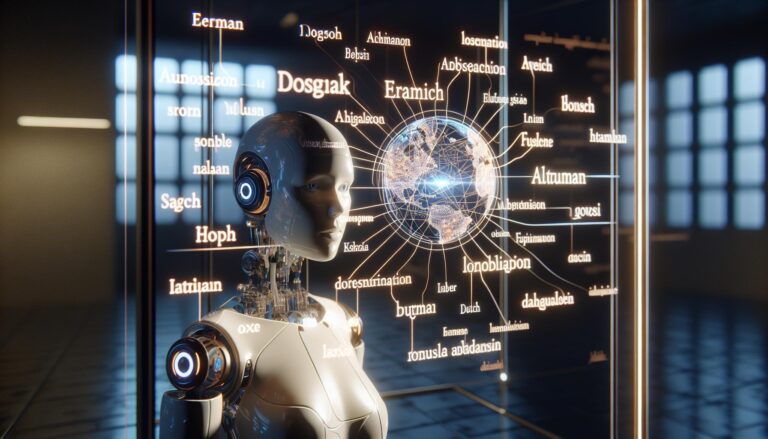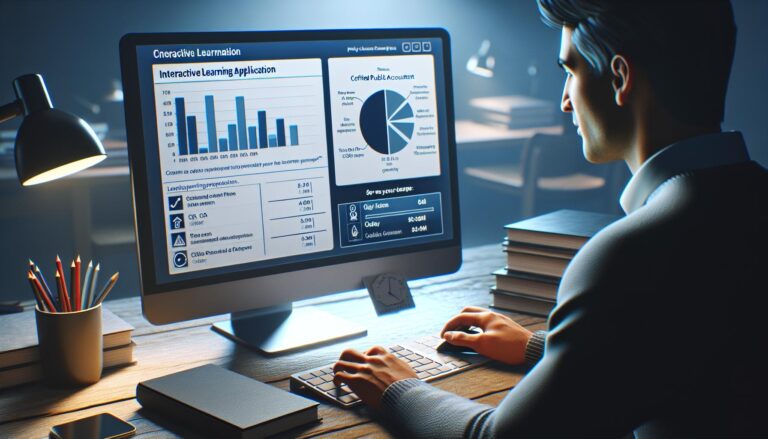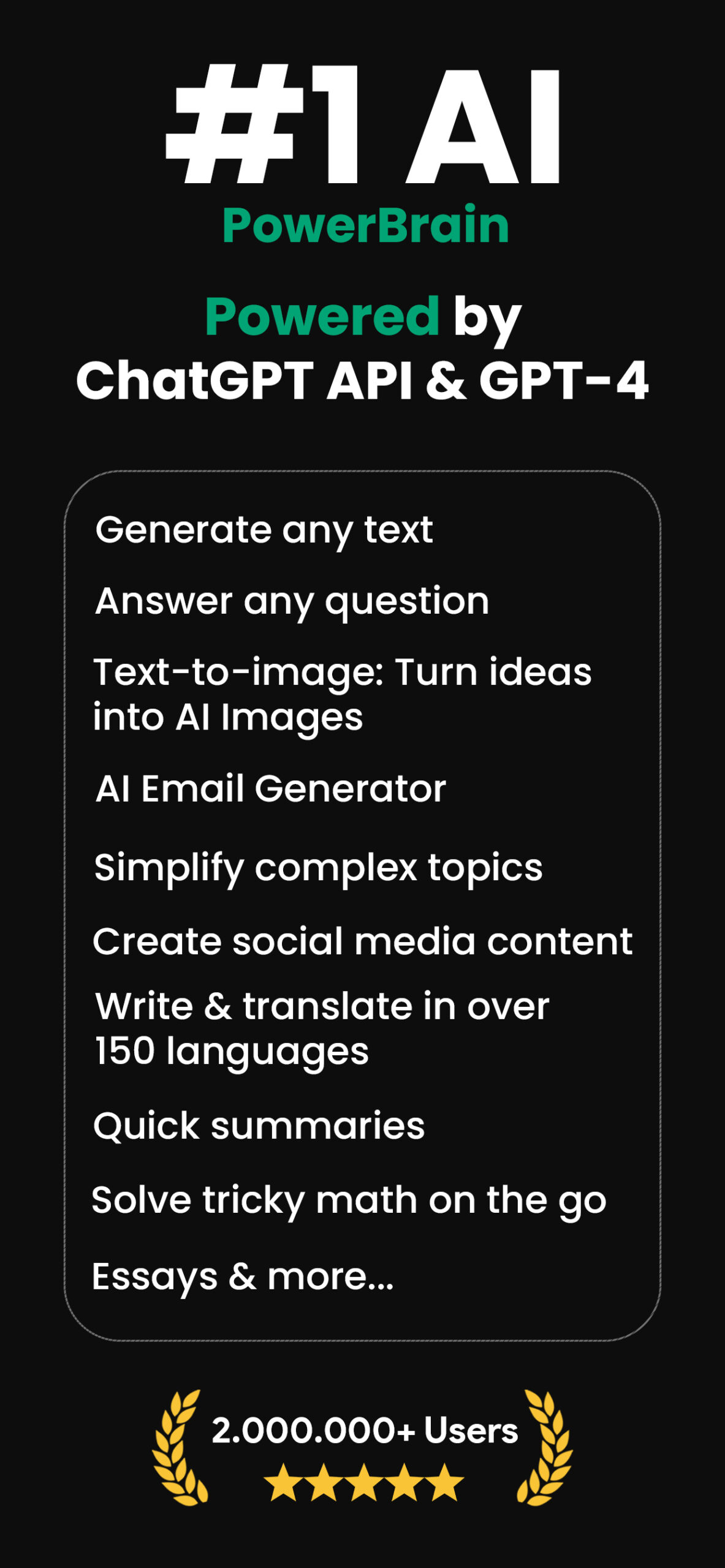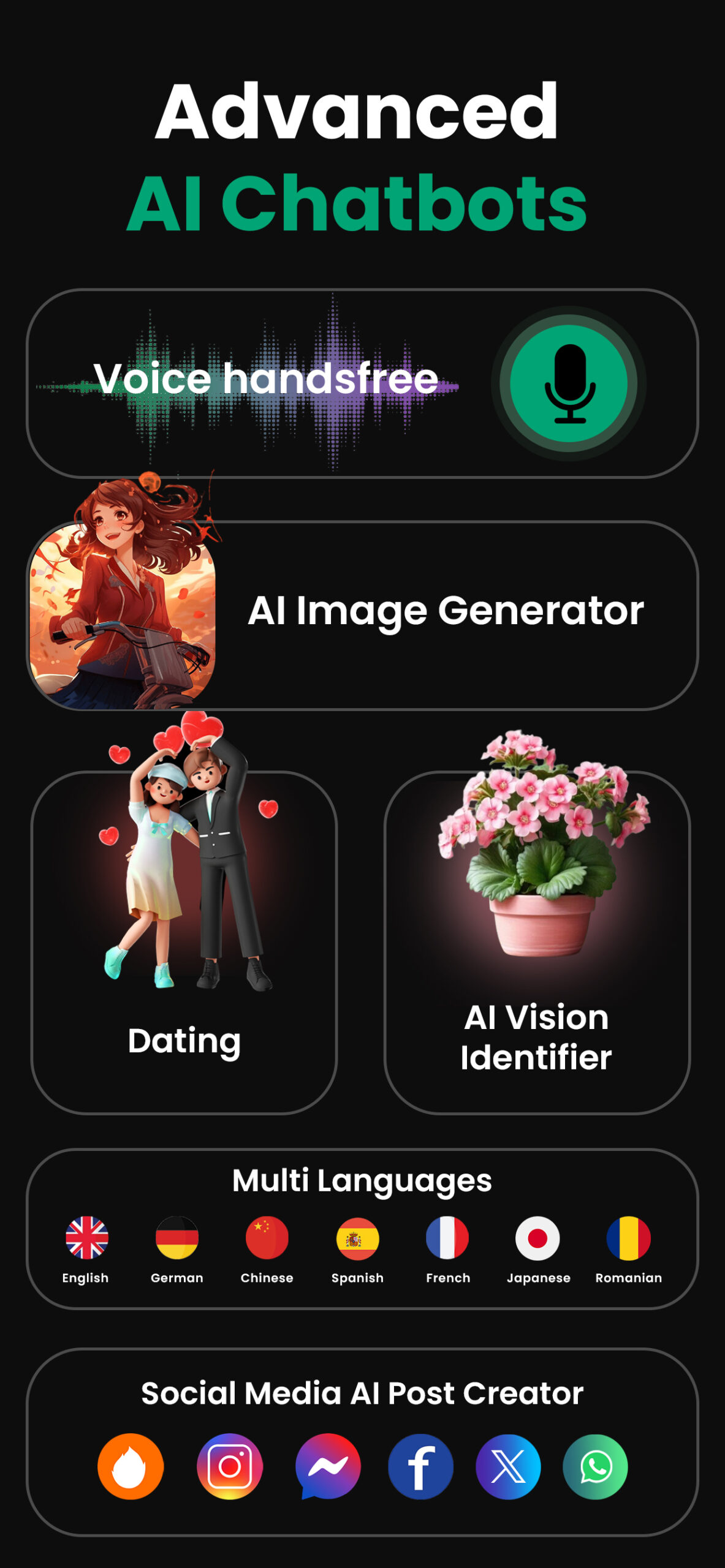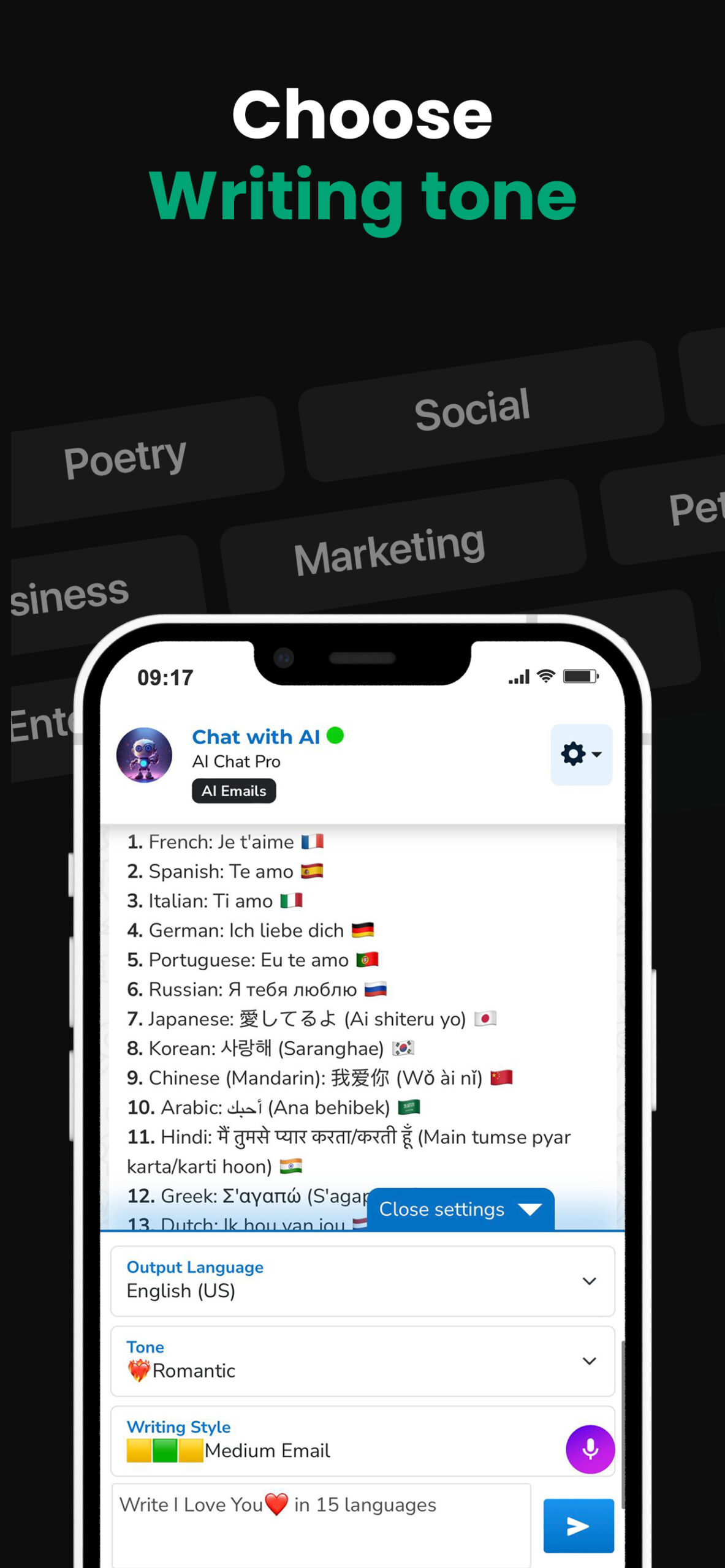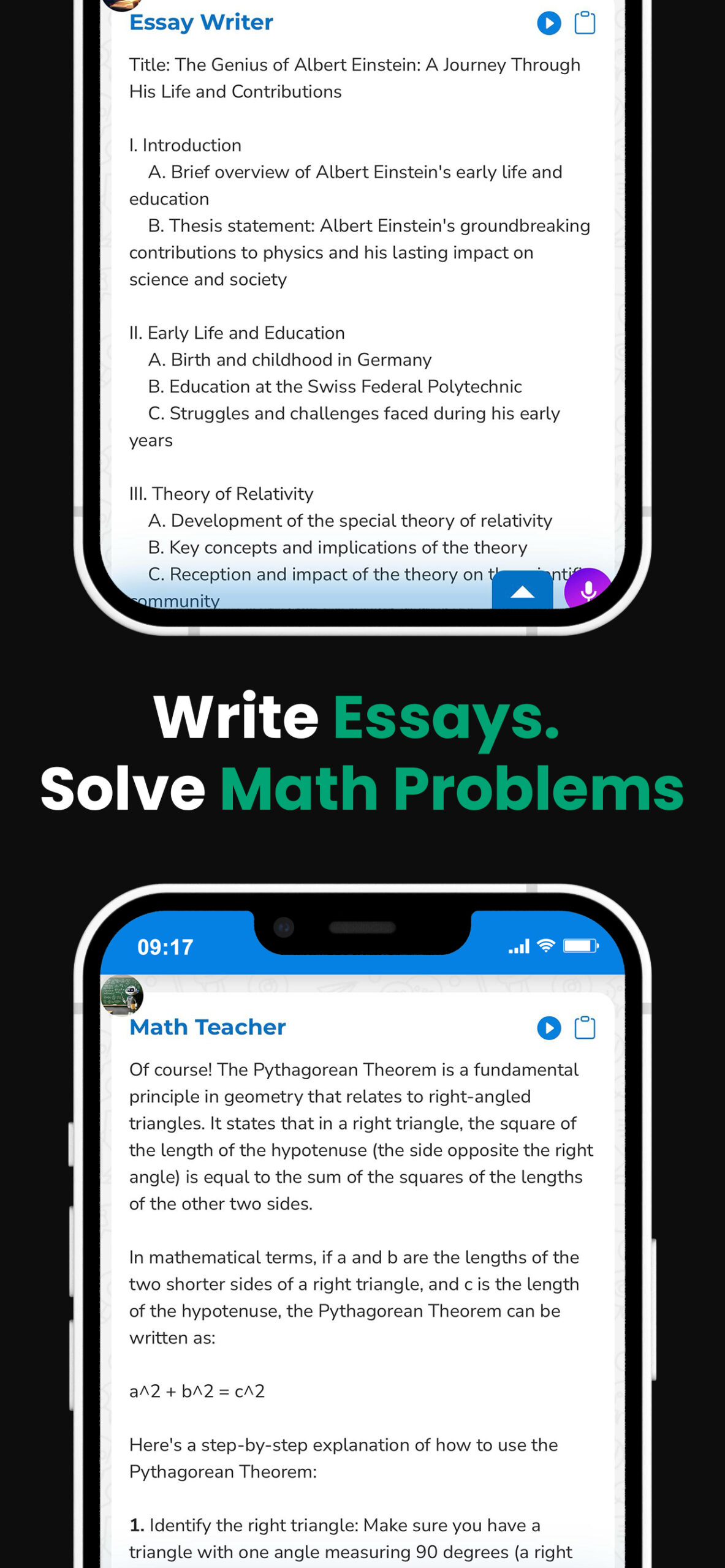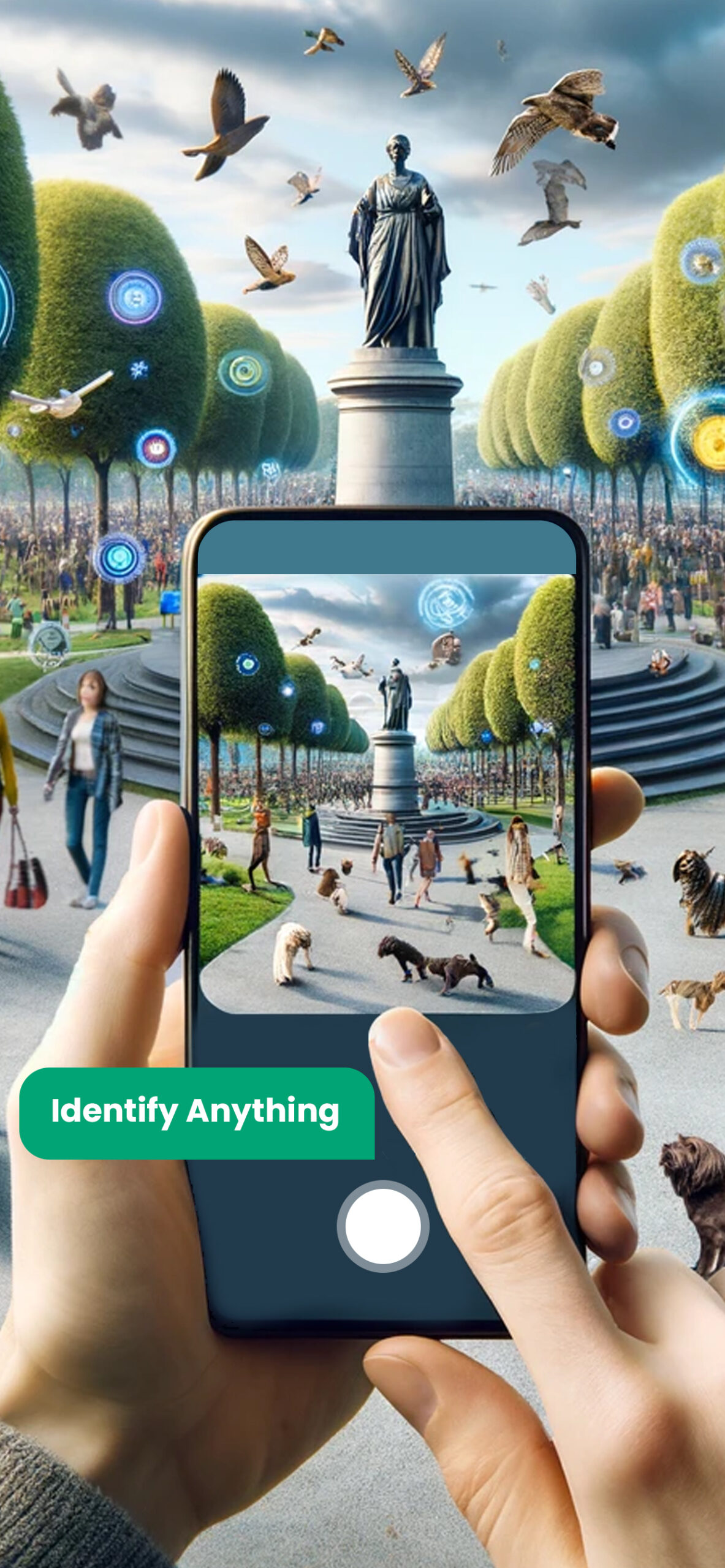Revolutionizing Legal Practice: The Rise of Chat GPT for Lawyers
Last Updated on April 30, 2024 by Alex Rutherford
In the fast-paced world of law, it’s crucial for lawyers to stay ahead of the curve. One technology that’s making waves in the legal field is chat GPT (Generative Pre-training Transformer). This AI-driven tool is revolutionizing the way lawyers communicate and operate.
Chat GPT is a language prediction model that uses machine learning to generate human-like text. It’s a game-changer for busy legal professionals, helping them streamline their work and enhance their client services. This tool allows lawyers to automate routine tasks, freeing up more time for high-level strategy and critical thinking.
As we delve into this exciting technology, we’ll explore how chat GPT can benefit lawyers. We’ll uncover its potential applications in the legal field and why it’s becoming an indispensable tool for modern law practice.
PowerBrain AI Chat App powered by ChatGPT & GPT-4
Download iOS: AI Chat
Download Android: AI Chat
Read more on our post about ChatGPT Apps & Chat AI
Key Takeaways
- Chat GPT is a revolutionary AI tool for lawyers. As a language model, it utilizes machine learning to generate text that mirrors human conversation, aiding in various tasks and client interactions.
- This tool provides substantial efficiency benefits. By automating routine tasks such as legal research, contract analysis, and setting appointments, lawyers can focus on high-level strategic tasks which require their expertise.
- Client interaction is greatly improved with Chat GPT. It simulates human speech patterns, allowing for a smoother user experience while promptly answering queries and providing swift services.
- Chat GPT enhances legal practices through automation and time management. Routine tasks become more efficient and accurate, giving legal professionals more time to focus on significant aspects of their job.
- Chat GPT significantly boosts the quality of client services. Through real-time legal advice and improved communication, it elevates the client service experience and assists lawyers in providing clear, concise, jargon-free communication.
- AI advancements like Chat GPT have the potential to shape the future of legal practice. With increased productivity and streamlined day-to-day operations, it’s transforming the traditional attorney-client model while serving as a valuable resource for legal professionals.
Understanding Chat GPT for Lawyers
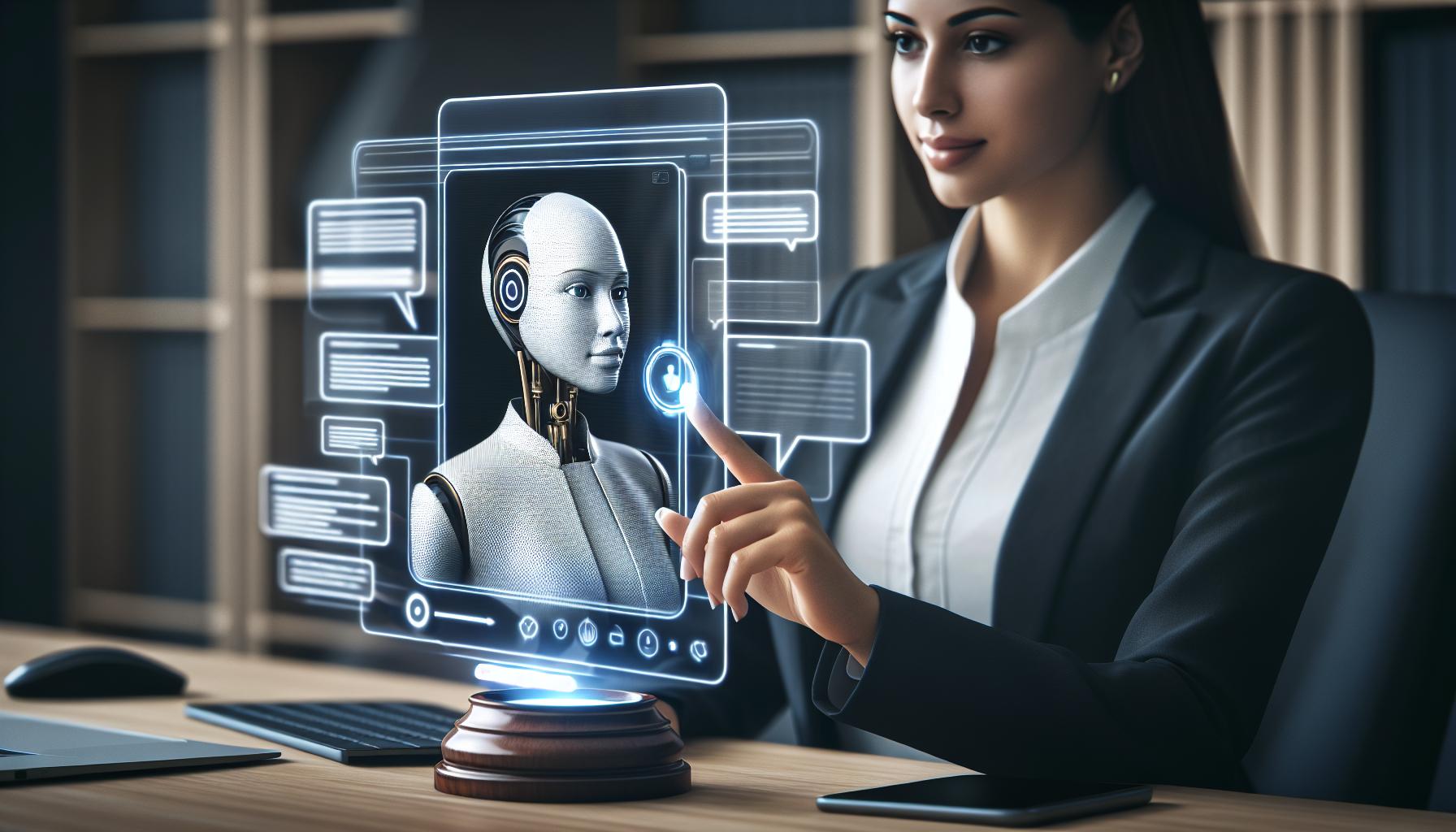
To comprehend how Chat GPT benefits lawyers, let’s first delve into its functionality. Created by OpenAI, Chat GPT is a language model that utilizes machine learning to generate text that mirrors human conversation. This AI tool can understand prompts given to it and respond intelligently, making it a valuable asset for any profession, including law.
What sets Chat GPT apart is its ability to predict human dialogue accurately. It’s created using large scale transformer models, and these models are trained using a diverse range of internet text. With its ability to predict and produce conversations that feel natural, it can be a game-changer for lawyers.
While the use of AI in law isn’t new, the scope of what AI can accomplish has expanded greatly with advancements like Chat GPT. Legal professionals can automate more tasks, from simple ones like setting appointments and drafting emails to the more complex and insightful ones like legal research and contract analysis. This level of automation allows lawyers to focus on higher-level tasks that require their expertise and direct attention.
Chat GPT isn’t just a tool for behind-the-scenes work. It can also significantly enhance client interaction. Because the tool can simulate human speech patterns, lawyers can use it as an interactive interface for clients. This can offer a streamlined user experience, promptly answering client queries and providing swift services.
Not only does Chat GPT have the potential to handle huge data, but it can also learn from its past interactions. That’s a key distinction between traditional automation tools and AI tools like Chat GPT. The more this tool is used, the smarter it gets – evolving to better assist lawyers and improve their efficiency.
In the evolving landscape of the legal field, staying updated with the technological advancements like Chat GPT can provide legal professionals a significant competitive advantage. It’s forging the way forward for smart, efficient, and client-friendly practices in the legal world. On this journey of technological integration, understanding and leveraging Chat GPT’s capabilities can clearly make a difference in a lawyer’s practice.
Benefits of Chat GPT in the Legal Field
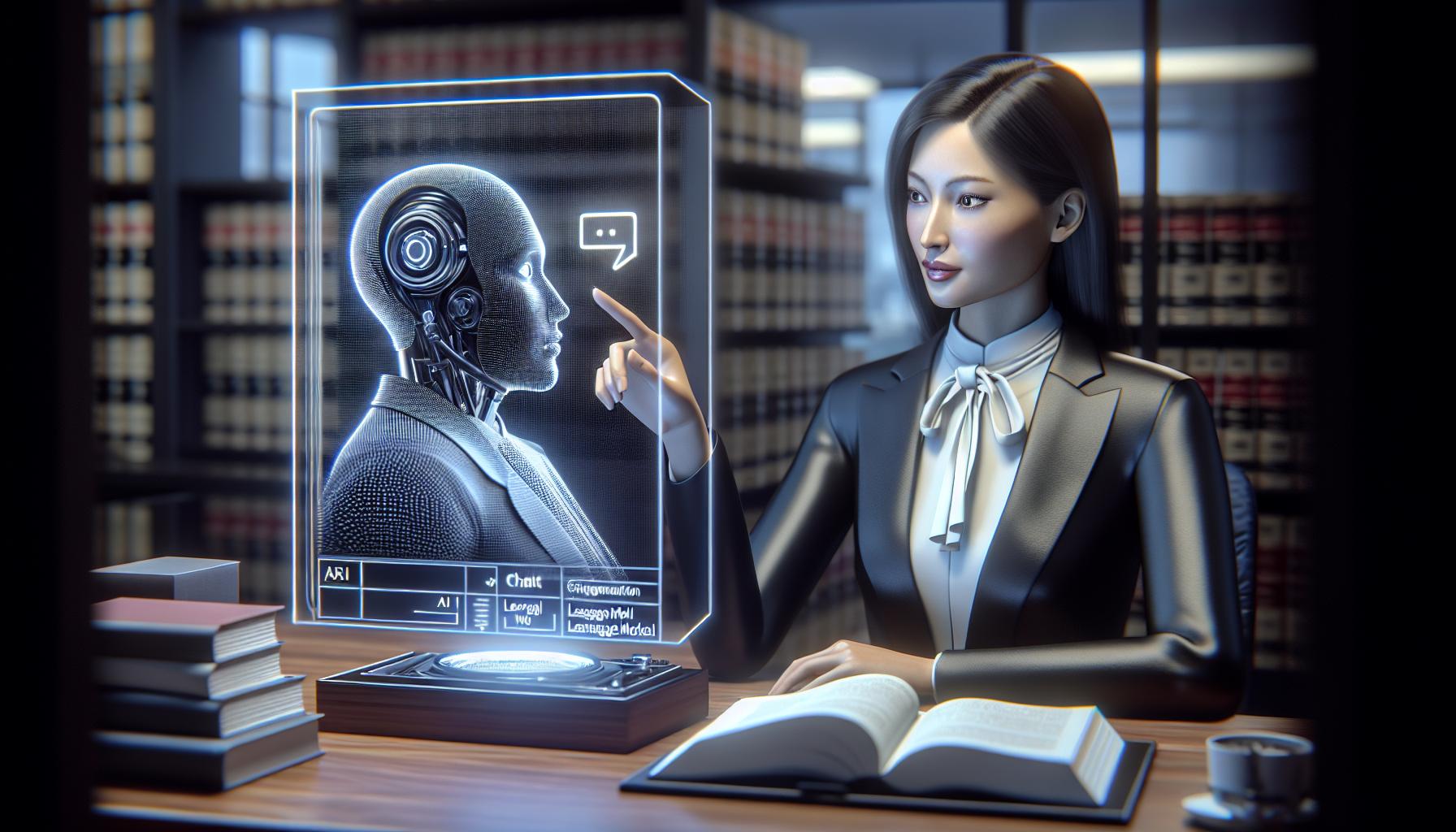
In today’s dynamic legal arena, Chat GPT stands out as a uniquely effective tool. With its predictive abilities and understanding of human conversation, it offers potential benefits that could redefine how lawyers work.
To begin with, the automation offered by Chat GPT is game-changing. As a lawyer, you’re used to sifting through mountains of information while researching for a case. With this AI tool, it handles the heavy lifting. As it learns from past interactions, it becomes increasingly skilled at recognizing relevant data. That means less time spent on research and more accurate results.
Second, this technology streamlines document review and contract analysis. It’s no secret that these are some of the most monotonous tasks in legal work. But Chat GPT’s powerful predictive abilities can process and analyze these documents in a fraction of the traditional time, increasing efficiency and reducing the risk of errors.
| Advantage | Details |
|---|---|
| Improved efficiency | Less time on research |
| Accuracy | High recognition of relevant data |
| Time-saving | Speedy document and contract analysis |
| Reduced errors | Lower risk of overlooking critical information |
Additionally, this tool can enhance communication with clients. By simulating human speech patterns, it can handle routine client interactions or inquiries. This leaves you free to focus on more complex issues that require your legal expertise.
Ultimately, 200,000+ lawyers globally are harnessing automation and data-driven insights to increase productivity. Joining this revolution doesn’t just make you more efficient. It fundamentally enhances your ability to offer first-rate legal services, attract new clients, and outmaneuver the competition in the thriving legal marketplace. Life as a lawyer gets a significant upgrade with the adoption of tools like Chat GPT into your workflow.
Automated Tasks and Time Management
As an established blogger who’s carefully observed the impacts of technology on various sectors, it’s crystal clear that automation is at the forefront of modernizing legal practices. These technological advancements have presented incredible opportunities for lawyers, with Chat GPT among the leading tools in this revolution.
Think about the time-consuming tasks that eat into your workday. From researching case precedents to reviewing convoluted contracts, these activities can be laborious, time-intensive and prone to error. Here’s where Chat GPT shines, this AI-driven marvel streamlines these tasks, providing efficient and accurate outcomes.
Let’s delve into the nitty-gritty. For lawyers, time is an indispensable asset – and Chat GPT understands that! This tool is programmed to simulate human intelligence, effectively handling tedious tasks such as document review and legal research. By offloading these tasks onto this AI, lawyers can allocate their time to more crucial aspects that require human touch, from courtroom appearances to client consultations.
Imagine no longer having to pour over pages of contracts, or painstakingly seek out relevant case study examples. The automation capabilities of Chat GPT take care of these tasks, vastly reducing the hours spent on tedious assignments, and allowing lawyers to focus on case strategy and client engagement.
Table outlining some time management benefits when using Chat GPT:
| Benefits | Without Chat GPT | With Chat GPT |
|---|---|---|
| Contract review | 8 hours | 2 hours |
| Case precedent research | 5 hours | 1 hour |
This meant more time for engaging with clients, building relationships, and formulating ingenious strategies to win cases. Efficiency and quality go hand in hand with Chat GPT, making it a tool every lawyer should seriously consider embracing.
Enhancing Client Services
When it comes to the use of Chat GPT for Lawyers, it’s much more than a tool for speeding up tedious operations and reducing workload. One of the most respected and recognized benefits is its undeniable role in boosting client services. Whether it’s the provision of real-time legal advice or instant communication via chatbots, Chat GPT takes client service experience up a notch.
Here’s the real deal. Let’s delve into how Chat GPT can help lawyers improve their client services.
Real-Time Legal Advice
Nowadays, clients crave for rapid responses and instant gratification. With Chat GPT, lawyers can automate the generation of instant real-time legal advice in response to client queries. It’s a true win-win situation – clients get immediate answers to their legal queries while lawyers can provide informative responses without the need to be constantly available.
Here’s a quick example. Imagine a potential client reaching out via email in the middle of the night, skimming through several online law firms with pressing legal queries. With Chat GPT, this potential client could receive immediate guidance, boosting the chances of them choosing your service over others.
Improved Communication
One of the strong points of Chat GPT is its sophisticated language understanding abilities. It can draft responses in a user-friendly and understandable manner. This translates into an improved communication channel that obviates the need for jargon-filled conversations.
Lawyers can use Chat GPT to simplify complex legal terms and generate clear, concise explanations. This eases the understanding for clients and helps them better comprehend their legal situations. A good example of this is translating the legalese in a court order or contract for a lay client.
Let’s not forget the role of this tool in empowering lawyers to focus more on strategic case planning and spending their valuable face-to-face time with clients in a more productive manner. No reason to stop this transformative journey towards a more effective, tech-optimized legal environment.
The Future of Chat GPT in Law Practice
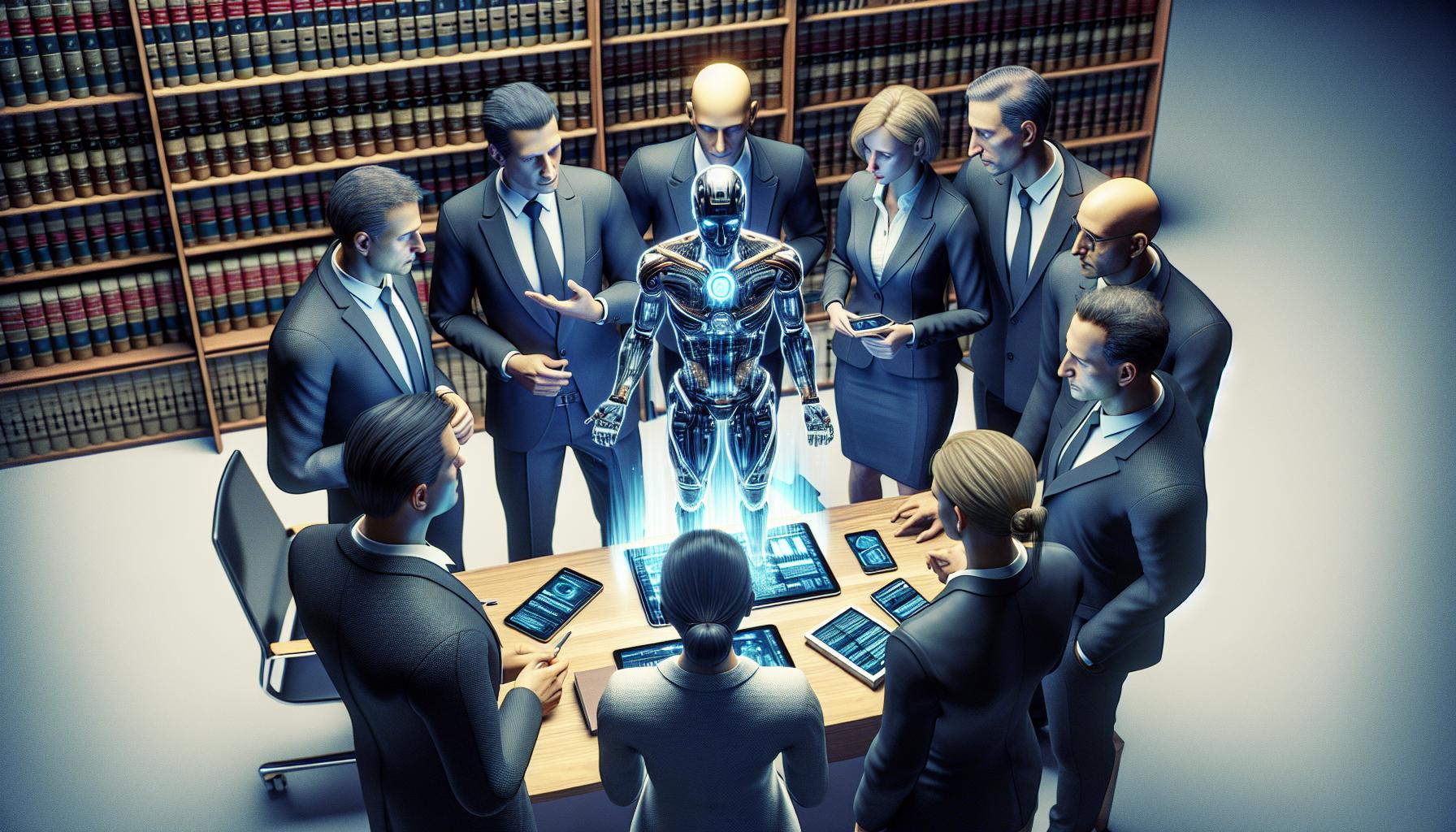
The influence that Chat GPT will have on legal practice seems vast. As this technology continues to evolve, its impact will be seen in everything from client interactions to legal research and case preparation. For the modern lawyer, a more efficient, responsive, and effective legal practice means better client service.
Advancements in AI like Chat GPT have the potential to redefine legal service delivery. Current technology allows for efficient real-time interactions, and we’re not far from a future where AI chatbots like Chat GPT will simulate conversations with clients and provide legal advice on the spot. This is transforming the traditional attorney-client model.
It’s fascinating to imagine the day when Chat GPT will autonomously sift through volumes of legal documents, spot potential issues and discrepancies, and even craft comprehensive legal briefs. The time and effort saved translates into valuable resources that can be channeled into strategic case planning.
This same advanced technology also holds promise in enhancing legal training for young professionals entering the field. Leveraging Chat GPT in legal education will enable budding lawyers to grasp dense legal concepts, making learning more interactive and engaging.
With the latest figures stating AI adoption in law firms has grown by 23% over the past year, it’s evident that the legal community is ready to embrace technology. Law firms are increasingly relying on AI applications to streamline their day-to-day operations and reduce costs.
| Year | AI Adoption in Law Firms (%) |
|---|---|
| 2020 | 20 |
| 2021 | 23 |
While the possibilities of how Chat GPT could transform legal practice are intriguing, it’s important to remember that these tools serve as assistants. They are designed to be resources for legal professionals, not replacements. Their purpose is to empower lawyers with timely, comprehensive, accurate legal information – not to replace the critical analysis and nuanced understanding that experienced lawyers provide.
As we look towards the future, there is a lot to anticipate and prepare for with the advent of AI in the legal profession. The coming years will undoubtedly reveal just how much potential there is in this brave new world of Chat GPT and AI-assisted legal practice.
Conclusion
It’s clear that Chat GPT is a game-changer for the legal profession. It’s not just about automating tasks or speeding up processes. It’s about reshaping how we approach law. With AI chatbots, real-time legal advice becomes a reality, legal documents can be analyzed autonomously, and legal education gets a much-needed boost. The rise of AI in law firms is undeniable, but it’s important to remember that these tools are here to assist, not replace. As we move forward, we’ll see AI playing an increasingly significant role in the legal field. This brings exciting new possibilities but also challenges we’ll need to navigate. The future of law is digital, and it’s time we prepare for what’s coming.
Frequently Asked Questions
What are the potential applications of Chat GPT in the legal field?
Chat GPT can revolutionize legal practices by reshaping client interactions, facilitating legal research, and aiding in case preparation. It offers capabilities like providing real-time legal advice, analyzing legal documents, and enhancing legal education.
How can Chat GPT assist in client interactions?
AI tools like Chat GPT can facilitate better communication with clients by offering instant responses, simplifying complex legal jargon, and maintaining availability around the clock.
Will AI tools like Chat GPT replace legal professionals?
No, artificial intelligence tools are designed to assist legal professionals, not replace them. These powerful tools can enhance efficiency and effectiveness but they don’t diminish the importance of human expertise in the legal profession.
How is AI adoption impacting the future of the legal profession?
With the rise in AI adoption, future legal systems could significantly leverage AI tools for efficient services. This presents both opportunities and challenges, calling for proactive preparation among legal professionals.


